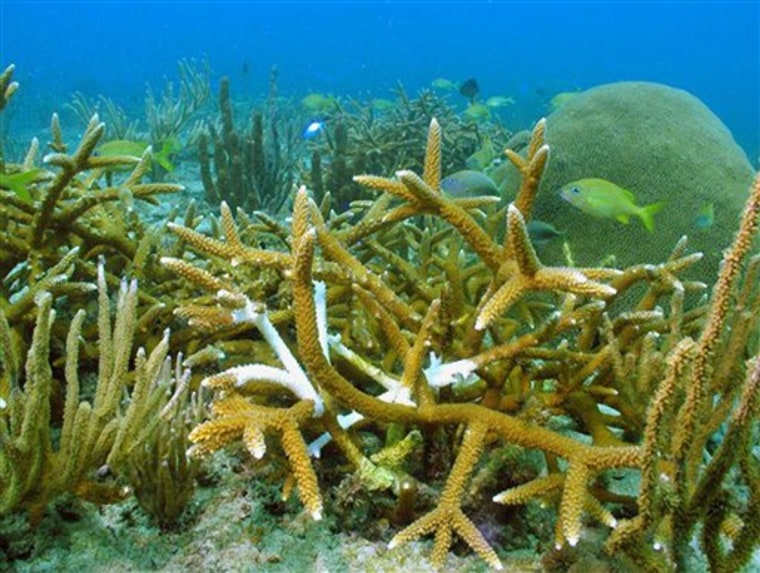The world's oceans are becoming more acidic, which poses a threat to sea life and Earth's fragile food chain, German researchers told delegates at a U.N. conference on climate change.
Oceans have already absorbed a third of the world's emissions of carbon dioxide, one of the heat-trapping gases blamed for global warming, leading to acidification that prevents vital sea life from forming properly.
"The oceans are rapidly changing," said professor Stefan Rahmstorf. "Ocean acidification is a major threat to marine organisms."
Fish stocks and the world's coral reefs could also be hit while acidification risks "fundamentally altering" the food chain, he said.
"Acidity is causing a major threat to coral reefs, on top of the bleaching effect that comes with warming," he said.
Reefs get bleached when warm water forces out tiny algae living in them, giving reefs nutrients and their vivid colors. Without algae, corals whiten and eventually die.
In a study titled "The Future Oceans — Warming Up, Rising High, Turning Sour," Rahmstorf and eight other scientists on Thursday warned that the world is witnessing, on a global scale, problems similar to the acid rain phenomenon of the 1970s and 1980s.
Rahmstorf, the head of Germany's Potsdam Institute for Research into Climatic Effects, said more research is urgently needed to assess the impact of ocean acidification.
Rahmstorf also reiterated warnings of rising sea levels caused by global warming, saying that in 70 years, temperature increases could lead to more frequent storms with 200 million people threatened by floods.
Scientists blame the past century's one-degree rise in average global temperatures at least in part for the accumulation of carbon dioxide, methane and other heat-trapping greenhouse gases in the atmosphere — byproducts of power plants, automobiles and other fossil fuel burners.
The 1997 Kyoto accord requires 35 industrialized countries to reduce greenhouse-gas emissions by 5 percent below 1990 levels by 2012. The Kyoto countries meeting in Nairobi are continuing talks on what kind of emissions targets and timetables should follow 2012.
